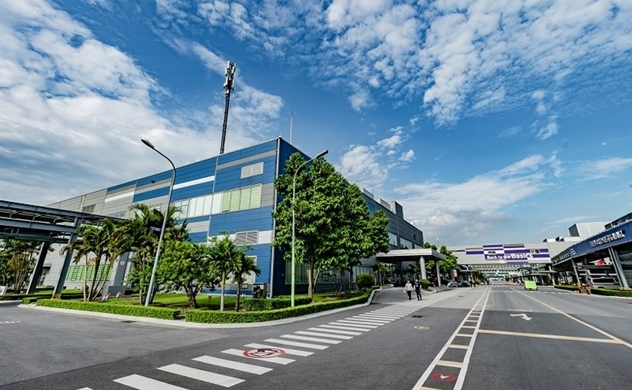Thailand’s economy contracts 12.2% in second quarter, weakest in 22 years

navy officials in protective suits stand beside a plane that brought Thai nationals back from Wuhan, the epicentre of the novel coronavirus outbreak, at the military U-Tapao Airport in Rayong. (AFP)
Gross domestic product shrank 12.2% from a year ago, the National Economic and Social Development Council said Monday, its biggest decline since the Asian financial crisis in 1998.
The figure wasn’t quite as bad as the median estimate of a 13% contraction in a Bloomberg survey of economists.
The outlook for Thailand’s economy this year is the most dire in Asia given its reliance on exports and tourism, both of which have suffered heavy blows amid the Covid-19 outbreak.
The pain has been compounded by the strong baht, which gained more than 6% in the the April-June quarter, the second-best performing currency in Asia tracked by Bloomberg.
“We are concerned about the economy, especially employment, bad debts” and small and medium enterprises, said Thosaporn Sirisumphand, secretary general of the economic council. “We will try to take care of 16 million workers in the informal sector. We have prepared measures to help them.”
The council cut its full-year forecast to a 7.3%-7.8% contraction, from an earlier estimate of a 5%-6% fall. That’s still better than the 8.1% fall seen by the country’s central bank and the 8.5% decline the Finance Ministry expects.
“The worst is likely over, but there is still no reason to pop the champagne yet,” said Howie Lee, economist at Oversea-Chinese Banking Corp in Singapore. “From here we expect the pace of economic recovery to be gradual, with many challenges still facing the Thai economy.”
The baht was little changed at 31.131 per dollar after the data. The benchmark stock index was steady, paring earlier gains of as much as 0.4%.
Monday’s data reflect the fact that the economy was shut for part of the second quarter, and borders remain closed to most foreigners. The government has gradually eased restrictions on domestic movement since May, and almost all businesses can now open.
The government, which has announced $60 billion in stimulus, is in the midst of changing its economic team. New Finance Minister Predee Daochai will need to work with Sethaput Suthiwart-Narueput, who will take over as central bank governor Oct 1, to coordinate fiscal and monetary policy.
Anti-government protests, mainly by young people, are starting to gain momentum and add to uncertainty. More than 10,000 people rallied in Bangkok on Sunday, one of the biggest gatherings yet as protesters demand an end to the military-led administration.
“Notwithstanding the expected prolonged slump in tourism, the recent unrest in Thailand may also dampen investor sentiment, in addition to the already-fragile consumption trend,” OCBC’s Lee said.
Source: Bangkok Post
Same category news
-
Tsubasa Suruga
-
Kenya Akama - Fumika Sato
-
Cong Thanh
Latest news
-
Vân Nguyễn
-
Huyen Hoang

 TIẾNG VIỆT
TIẾNG VIỆT 










_291615658.jpg)








